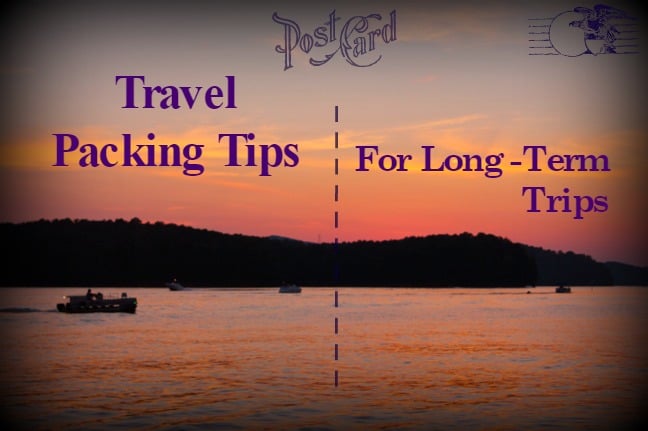I’d been traveling for years before I even considered the notion that travel packing tips could make a difference in the trips my wife and I took.
I was on my way to the airport after 8 weeks in Kuala Lumpur, Malaysia, when I first realized with absolutely certainty that my luggage had gotten out of hand.
Standing on the platform for the monorail, I’d already watched several trains go by. There were hordes of people rushing out of the cars, and equally overwhelming throngs loading them back up. My bags and I took up the space of at least five Malay people, and I hadn’t been able to bring myself to attempt boarding with the others.
Good packing is an experiential skill, and its efficiency should be savored. A well-packed suitcase or backpack makes a traveler’s life much easier.
It rids us of the ridiculous bevy of Travel Fashion choices we normally give ourselves, unloading the undue burden of carrying so much baggage (which is often just as much emotional as it is physical).
It also makes the lives of those around us— other travelers, bellhops, drivers, etc.— easier when we aren’t hogging the overhead bin or swinging heavy objects about without the ability to see peripherally.
I had to learn this lesson the hard way. But with these travel packing tips, perhaps other long-term travelers will be enlightened to do as I say, and not as I’ve done…
Top 8 Travel Packing Tips
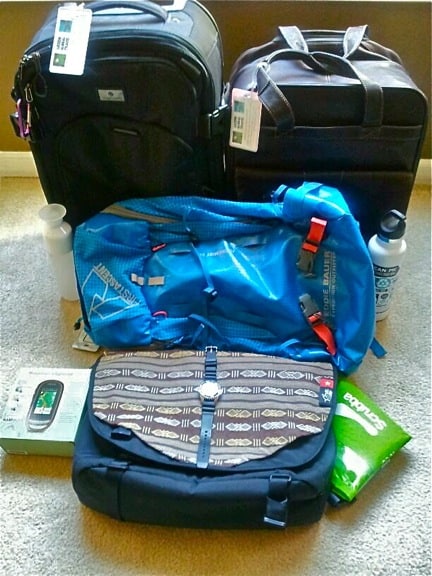
1. The size of your bag is important.
Don’t let anyone tell you differently: When it comes to packing, the size of your bag matters. Human (and I say that meaning me, specifically) tendency is to fill it to maximum capacity.
One big bag is not really any better than three smaller ones.
It’s just another way to carry way more than we need. Buying a bag that isn’t big enough to hold “everything” limits us to packing more sensibly.
READ MORE: Best Carryon Luggage
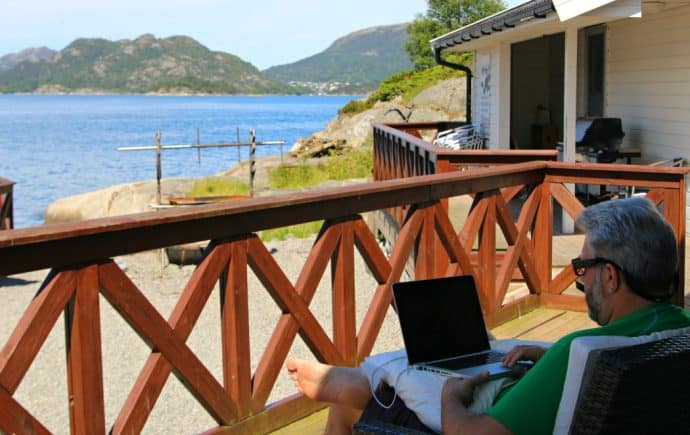
2. The electronic revolution is real.
A phone. An e-reader. A laptop. An MP3 player. A camera. A tablet… you know, for when you’re lazing by the pool.
Traveling well is about taking the time to unplug a bit. Let one or maybe two small devices do the job.
What’s so pressing? We’re all hip to the fact that we have far too many devices, so this is the perfect moment to revolt a little.
To ensure the bulk of the trip won’t be spent gazing at a screen instead of the stunning view, leave most of it behind unless it’s a working holiday.
READ MORE: The Ultimate Beach Vacation Packing List
3. Clothing changes with the climate.
Firstly, choose versatile, lightweight, quick-drying clothing. Pack for immediate purposes more than fashion, or trying to anticipate every possible change in weather.
For globetrotters, this initially can be a huge concern. But it needn’t be: By the time most round-the-world trips have ended, seasoned travelers have moved through several wardrobes, leaving and receiving the right gear as they traverse.
Remember that, in a pinch, whatever is needed will usually be available for rental or purchase, eliminating the need to take your parka to a tropical beach.
READ MORE: The Best Travel Clothing For 7 Travel Styles (An Epic Guide)
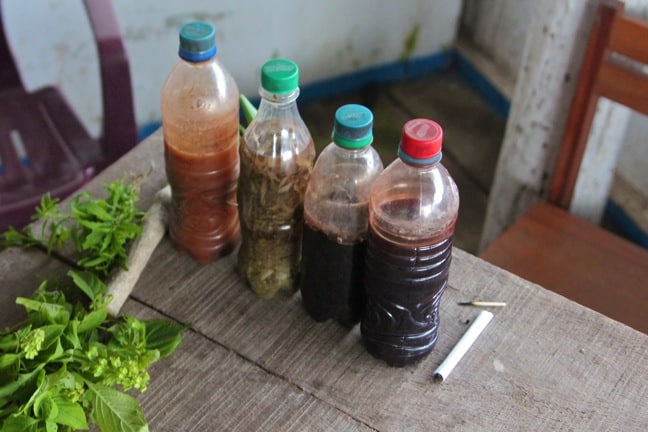
4. Toiletries Are Used Throughout the World.
Shampoos, razors, soap, toothpaste, and the lot are readily available just about everywhere in the world (even in jungles), including at most green hotels and eco-lodges.
There is absolutely no need to pack large bottles of anything, nor is there any call for carrying extras.
If something is not available in a given destination, don’t fret: Not having it will often help you blend in. Otherwise, try buying concentrates when possible to lessen the load.
READ MORE: What is an Eco Lodge? (The Top 10 Eco Lodges in the World)

5. Most Likely, You Can Go without ________.
When leaving on a long trip, we might pack our creature comforts so that we won’t be without someone, something, or our favorite pillow.
But in truth we can live without most things in this category.
If the need isn’t absolute, then let it stay home, awaiting a luxurious return full of all the cushions, robes, and comfortable shoes that once made life feel complete.

6. Multi-purpose means making more from less.
Things are not always what they seem. Sarongs may appear to be merely a lightweight cut of brightly colored cloth for the beach.
But, in the right traveler’s hands, they perform many a function. T
they can serve as a towel, sunshade, privacy screen for a bottom bunk, tablecloth, laundry bag, skirt/dress, outdoor changing room, yoga mat, blanket, and so much more.
Beyond clothing, it’s wise to analyze all items on our travel packing checklist for how many different functions they can perform.
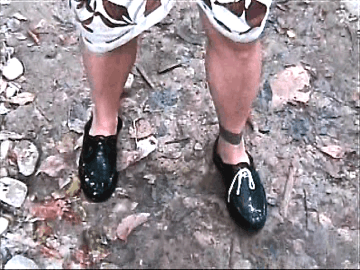
7. Footwear feels so nice, but not in a bag.
Two pairs of shoes are a good limit, and this should be held to tightly.
This includes a versatile pair of closed-toe shoes: Most likely something of the hiking variety, as they can function for playing basketball, climbing a mountain, or (with a quick clean) even fine dining attire.
The second requisite pair– and these are necessary for many locations– should be sandals, which provide the natural air-conditioned effect necessary in tropical spots, but don’t have the tendency to malfunction like flip-flops do.
READ MORE: List of National Parks By State (An Epic Guide to “America’s Best Idea”)
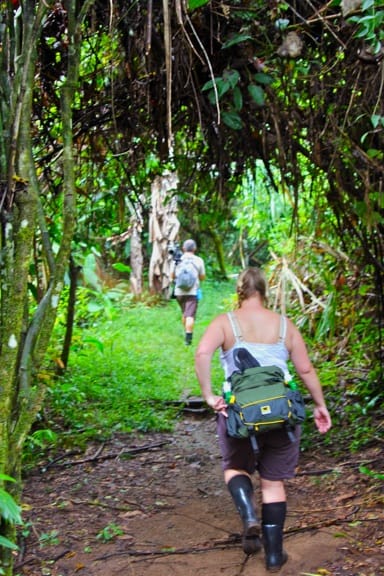
8. Some things must go, but others not so.
Using the travel packing tips above, the weight of your bag will have likely been reduced by 50%. Beyond that, there are a few things that must go with you on any long-term trip. But there are also other things that, though a bit antiquated, still tend to sneak into people’s luggage.
- Money: There is no need to carry a big wad of cash, nor is there any call for travelers’ checks. There will be ATMs nearly everywhere you travel, and there will be local banks. In dire straights, there is always Western Union. I like to have a primary travel card (PayPal) and a back-up (my bank), between which money can easily be transferred.
- Organizers: It seems astounding that a how-to post like this would suggest carrying extra stuff. But packing cubes and compression bags make living your life out of a bag long-term so much better. Otherwise, there will be a lot of constant unpacking, folding, and repacking. Plus, they reduce the space they take up by keeping bulky items compacted.
- Documents: For long-term travelers, our passports are REALLY important. If there are other documents needed (and this is rare), they can be put into a folder or a journaling notebook with a pocket page, along with the passport. This keeps them in good condition while simultaneously sliding along the back edge of a bag, taking up virtually no space.
- A Day Pack: It’s good to always have something small that can carry your valuable personal items during transit, and then work equally well for a day at the beach or trekking down into a canyon. Day packs also come in handy as a reusable bag (just say no to plastic bags!) for vegetable markets and grocery stores as well.
- First Aid Supplies: Let them be simple and sparse. But DO pack a few bandages, something to prevent infection, an immune booster (Oregano oil is amazing), and whatever else seems personally necessary for your health and well-being. This is only for off-the-beaten-track, out-in-nature emergencies. Otherwise, pharmacies are globally recognized institutions.
Undoubtedly, something on your travel packing list will be forgotten or overlooked, and something unnecessary will get packed. That’s fine.
The biggest point here is that very few things can’t be fixed, or gotten, or gotten rid of wherever we go around the world. If necessary, even passports can be replaced from abroad fairly easily (though this situation might not be ideal for some). In short, missing out on an experience because of not having packed enough is very unlikely. So pack minimally, and travel like a wild thing! -Jonathon Engels

Jonathon Engels is a traveler, writer & teacher who’s been living abroad as an expat since 2005. He’s worked in nearly a dozen countries, and visited many others in between. He’s currently on a slow travel trip from Central America to Patagonia, volunteering his way throughout the journey. He’s a regular contributor to One Green Planet as well as Permaculture News, which focus on helping to keep the world green and clean. He’s also the founder of The NGO List, a compilation of grassroots NGOs seeking international volunteers. His work can be found at Jonathon Engels: A Life Abroad, and his current whereabouts and goings-on are available on his personal blog.
If you enjoyed our Travel Packing Tips for Long-Term Trips, you might also like:
What Is Ecotourism? (The History & Principles of Responsible Travel)
Travel Fashion Guide: Clothing/Accessories for Every Travel Style
Our Travel Packing Checklist: GGT’s Gift Guide for Travelers
45 Going Green Tips for Travelers
GO GREEN TIP #117: 10 Steps to Becoming a more Responsible Traveler
